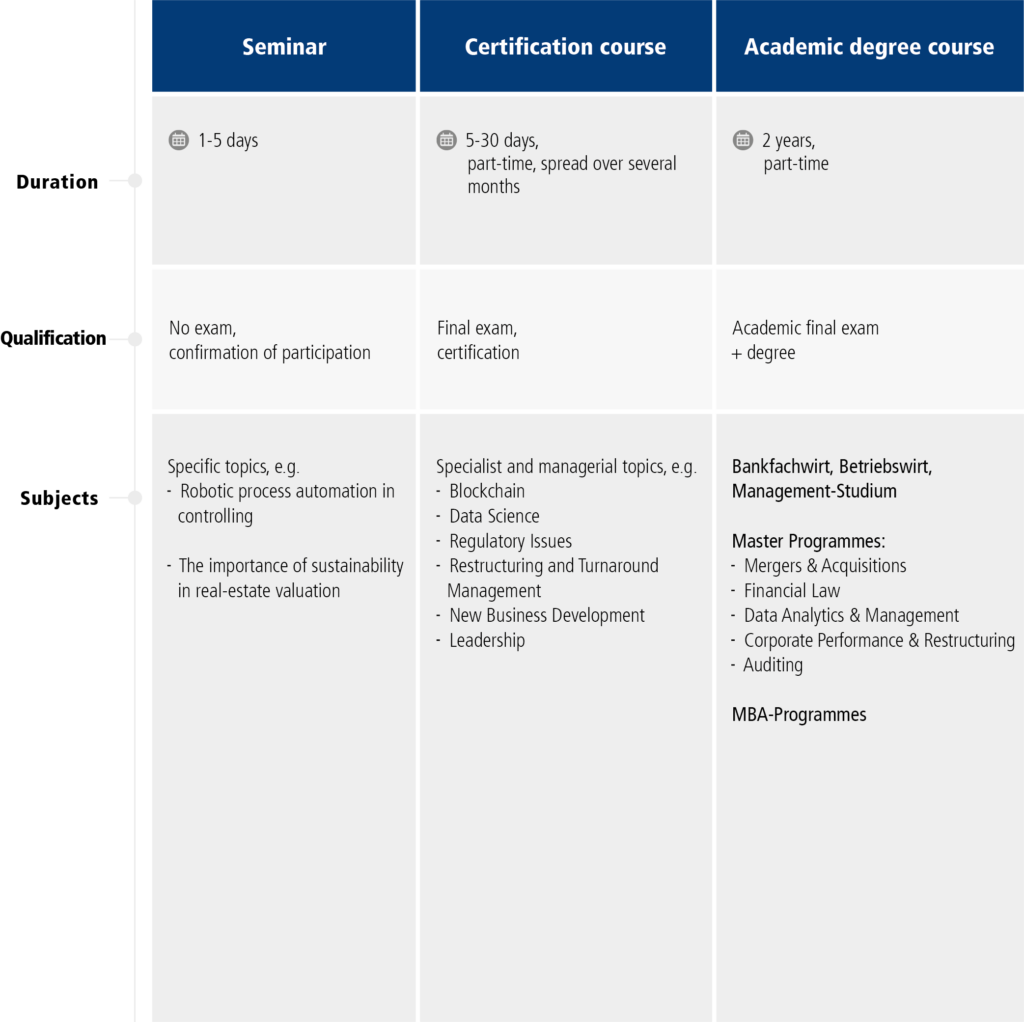We all know that feeling: final university exams. Yes, finals – maybe in the form of a block exam covering multiple subjects, or a whole bunch of individual exams, or a dissertation or thesis. Preceded by months of preparation, swotting, poring over books and lecture notes… And then the big day arrives, and it’s all over. Finished. No more exams – ever. You’ve done it, you’ve “finalised” your education. You’ve got a “solid degree” in the bag and now you’re ready to embark on your career!
It’s a fallacy, of course. And we all know as much, really. Because we’ll be learning new things for the rest of our lives. And in times of rapid and permanent change, it’s increasingly important to learn new things. In a growing number of areas, a single academic degree or one-time apprenticeship is no longer enough to base a career on – let alone a career that will last for years or even decades. But there’s a host of other reasons why lifelong learning is especially important nowadays.
Basically, lifelong learning is defined as the ability or capacity to learn on your own account throughout your life. Naturally, taking part in continuous professional development (CPD) or other continuing education programmes plays an important role, which is why so many universities have developed lifelong learning concepts and courses. This also applies to Frankfurt School, and we offer a comprehensive portfolio of Executive Education programmes to assist you in your personal and professional development no matter what stage you’ve reached in your career. We’re especially anxious to support our alumni on their continuous learning mission, which is why we also offer our Alumni Special, in the form of big discounts for alumni who come back to Frankfurt School to take a course.
In short, how do I navigate successfully through the jungle of seminars, courses, certifications, webinars, degree programmes and free-of-charge online sessions?
When deciding on the “right” CPD programme for you, three factors are particularly important (apart from the subject matter itself, of course, see also graphic below):
“You don’t learn for school; you learn for life.” How often have we all heard our parents and teachers utter this pearl of wisdom? And yet it’s probably more relevant today than ever before – as is another favourite saying: “You don’t just learn at school; you learn all your life.” As we accompany our alumni on their continuous learning journey, we’re delighted to act as their intellectual sparring partners!

